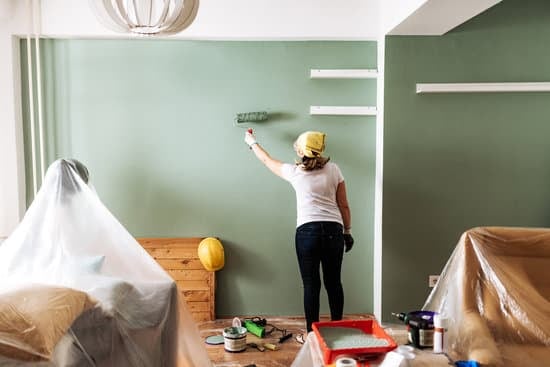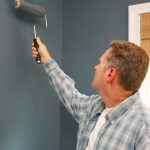Can you deduct home improvements costs on rental property? Making home improvements on rental properties not only enhances the value of the property but can also provide potential tax benefits for property owners. By understanding what expenses can be deducted and keeping proper documentation, property owners can maximize their tax deductions through home improvements.
Investing in home improvements can not only attract quality tenants and increase rental income but also help in reducing taxable income through deductions. It is essential for property owners to distinguish between repairs and improvements as they are treated differently for tax purposes. Knowing which home improvements qualify for deductions and maintaining accurate records of the costs incurred are key factors in leveraging these tax benefits.
This article will delve into the specifics of deducting home improvement costs on rental properties, providing a detailed breakdown of qualifying improvements, the documentation required, and steps to claim deductions accurately. Additionally, it will highlight the importance of seeking guidance from tax professionals to avoid potential risks and ensure compliance with tax laws. Through real-life case studies, property owners can gain insights into successful strategies for maximizing tax deductions through home improvements on rental properties.
Understanding Rental Property Deductions
When it comes to owning rental properties, expenses can quickly add up. From maintenance and repairs to improvements and upgrades, property owners are constantly investing in their rental units to attract tenants and increase property value. One important aspect of managing rental properties is understanding what expenses can be deducted for tax purposes. This section will provide a breakdown of what expenses can be deducted on rental properties, focusing specifically on home improvement costs.
Repairs vs. Improvements
Before diving into the details of deducting home improvement costs on rental properties, it’s crucial to understand the difference between repairs and improvements for tax purposes. Repairs are considered activities that are necessary to keep the property in good operating condition, such as fixing a leaky faucet or repairing a broken window. These repair costs can typically be deducted in the year they occur.
On the other hand, improvements are enhancements that add value to the property or prolong its useful life, such as installing a new roof or renovating a kitchen. While these improvement costs cannot be fully deducted in the year they occur, they can be depreciated over time.
Qualifying Improvements for Deductions
Now that we have established the distinction between repairs and improvements, it’s important to highlight which home improvements qualify for deductions on rental properties. Eligible home improvements include upgrades that are considered necessary for maintaining or increasing the property’s value, efficiency, or longevity.
This can encompass a wide range of projects, from replacing flooring and appliances to adding energy-efficient features like solar panels or smart thermostats. By keeping track of these qualifying home improvements and their associated costs, property owners can deduct home improvement costs on rental property, ultimately reducing their taxable income and maximizing their potential tax savings.
Difference Between Repairs and Improvements
When it comes to rental properties, distinguishing between repairs and improvements is crucial for tax purposes. Repairs are considered expenses that are necessary to keep the property in good condition and can be deducted in the year they were incurred. On the other hand, improvements are enhancements that increase the value of the property or extend its useful life. While you cannot deduct home improvement costs on rental properties immediately, you can depreciate them over several years.
One key factor that can help determine whether an expense qualifies as a repair or an improvement is the “Betterment Test.” If an expense results in a betterment to the property, such as adding a swimming pool or renovating a kitchen, it is considered an improvement. Improvements typically need to be capitalized and depreciated over their useful life, whereas repairs are considered ordinary and necessary business expenses that can be deducted in full.
It’s important for landlords and property owners to carefully document all expenses related to repairs and improvements on their rental properties. Proper documentation not only helps in accurately determining what can be deducted but also serves as evidence in case of audits by tax authorities. Keeping detailed records of costs, receipts, invoices, and contracts can help support your claims for deductions during tax filing season.
| Repairs | Improvements |
|---|---|
| Considered necessary to maintain property | Enhancements that increase property value |
| Deductible in year incurred | Capitalized and depreciated over time |
Qualifying Improvements
Home improvements on rental properties can significantly increase their value and appeal to tenants. It’s important for property owners to understand that these improvements can also lead to tax deductions. The Internal Revenue Service (IRS) allows certain home improvement costs on rental properties to be deducted, which can help offset taxable income and reduce overall tax liability.
When it comes to deducting home improvement costs on rental properties, it’s crucial to differentiate between repairs and improvements. While repairs are considered regular maintenance tasks to keep the property in good condition, improvements are upgrades that enhance the property’s value or extend its useful life. Generally, repairs are deductible in the year they are incurred, while improvements must be capitalized and depreciated over time.
Qualifying improvements that can be deducted on rental properties include additions like a new deck or patio, renovations such as kitchen upgrades or bathroom remodels, and enhancements like installing energy-efficient appliances or solar panels. These improvements not only benefit the property owner in terms of attracting tenants and increasing rent potential but also provide opportunities for tax deductions when properly documented and claimed.
| Improvement Type | Deductible Expenses |
|---|---|
| New Deck | Labor costs, materials |
| Kitchen Upgrade | Cabinets, countertops, appliances |
| Energy-Efficient Appliances | Refrigerator, dishwasher, washer/dryer |
By keeping detailed records and receipts of all home improvement costs incurred on the rental property, owners can accurately claim deductions at tax time. Proper documentation is key in proving the legitimacy of the expenses and ensuring compliance with IRS regulations. Property owners should maintain records of all expenses related to qualifying improvements, including invoices from contractors, receipts for materials purchased, and any other relevant documentation.
In order to claim deductions for home improvement costs on rental properties, owners should report these expenses on Schedule E of their individual tax return form. It’s important to follow IRS guidelines when claiming deductions and consult with a tax professional if needed.
Failing to properly document or claim eligible home improvement costs could result in penalties or an audit by the IRS. Therefore, seeking expert advice from a tax professional is highly recommended when navigating through deductions for rental property improvements.
Documentation Required
When it comes to deducting home improvement costs on rental properties, proper documentation is essential. Keeping detailed records and receipts can help property owners support their claims and ensure they are compliant with tax regulations. Here are some key reasons why maintaining proper documentation is crucial:
- Verification: Having accurate records allows property owners to verify the expenses incurred for home improvements. This documentation can serve as proof in case of an audit by the tax authorities.
- Maximizing Deductions: Proper documentation can help property owners maximize their deductions by including all eligible home improvement costs. Without adequate records, some expenses may be overlooked, resulting in missed deductions.
- Compliance: Maintaining proper documentation ensures that property owners comply with tax laws and regulations. Failing to keep records can lead to penalties or consequences if deductions are challenged.
Property owners should keep all receipts, invoices, contracts, and other relevant documents related to home improvements on their rental properties. These records should clearly indicate the nature of the work done, the dates of service, the cost incurred, and the name of the service provider. By organizing and storing these documents properly, property owners can streamline the process of claiming deductions and avoid potential issues in the future.
- Electronic storage: Consider digitizing and storing all documents electronically to prevent loss or damage. Online accounting software or cloud storage platforms can provide a secure way to store important records.
- Separate files: Create separate files or folders specifically for home improvement expenses to ensure easy access when needed. Organizing documents chronologically or by category can also facilitate efficient record-keeping.
- Consultation with professionals: If unsure about which documents to retain or how long to keep them for tax purposes, seeking advice from tax professionals or accountants is recommended. They can provide guidance on best practices for documenting home improvement costs on rental properties.
How to Claim Deductions
Making home improvements on your rental property not only enhances its value but also allows you to potentially benefit from tax deductions. Understanding how to claim these deductions is crucial for maximizing your financial benefits as a property owner. Here is a step-by-step guide on how you can claim deductions for home improvements on rental properties:
- Identify Qualifying Improvements: The first step in claiming deductions for home improvements on rental properties is to determine which expenses are eligible. Qualifying improvements are those that add value to the property, prolong its useful life, or adapt it to new uses. This can include renovations, additions, new appliances, and more.
- Keep Detailed Records: It is essential to keep thorough documentation of all your home improvement costs. This includes invoices, receipts, contracts, and any other relevant paperwork. Proper record-keeping can help substantiate your expenses and support your deduction claims in case of an audit.
- Calculate Deductible Costs: Once you have identified qualifying improvements and gathered necessary documentation, calculate the total cost of the deductible expenses. Remember that not all costs associated with home improvements may be eligible for deductions, so it’s crucial to differentiate between personal and rental property expenses.
By following these steps and ensuring accuracy in your documentation and calculations, you can deduct home improvement costs on rental property effectively. It’s important to consult with tax professionals or accountants specialized in real estate taxation to navigate complex regulations and maximize your tax benefits while staying compliant with the law.
Remember that improperly claiming deductions for home improvements on rental properties
- Risks: Facing penalties or audits if deductions are inaccurately reported or unsubstantiated
- Reward: The potential for significant savings through tax deductions that can positively impact your overall financial picture as a property owner
Taking full advantage of available deductions can help you save money while improving and maintaining your rental property – a win-win situation for both your investment portfolio and tax obligations.
Potential Risks
When it comes to deducting home improvement costs on rental properties, there are certain potential risks that property owners should be aware of to ensure they are in compliance with tax regulations. One of the main risks is incorrectly categorizing expenses as improvements when they should actually be classified as repairs. This can lead to unnecessary red flags during audits and may result in penalties or fines.
Understanding IRS Guidelines
It is crucial for property owners to familiarize themselves with the Internal Revenue Service (IRS) guidelines on what constitutes a deductible home improvement expense. The IRS has specific rules regarding capitalizing improvements versus deducting repair costs, and failing to adhere to these guidelines can lead to disallowed deductions and potential legal issues. Property owners must accurately differentiate between repair expenses that maintain the property’s current condition and improvements that enhance its value or extend its useful life.
Misinterpreting Eligible Expenses
Another risk property owners face when deducting home improvements costs on rental properties is misinterpreting which expenses qualify for deductions. Not all home improvement costs can you deduct home improvements costs on rental property are eligible for tax deductions, so it is important to distinguish between cosmetic upgrades and necessary repairs.
Claiming ineligible expenses as deductions can result in financial repercussions and delays in the tax filing process. It is essential for property owners to seek guidance from tax professionals or refer to IRS publications to accurately determine which home improvement costs are deductible.
Consultation With Tax Professionals
When it comes to deducting home improvement costs on rental properties, seeking advice from tax professionals is crucial. Tax laws can be complex and subject to change, so having a knowledgeable expert guide you through the process can help you maximize your deductions while avoiding potential risks.
Tax professionals can help property owners determine which home improvements qualify for deductions according to the current tax laws. They can provide guidance on distinguishing between repairs and improvements, ensuring that only eligible expenses are claimed. This clarity is essential in preventing errors that could lead to penalties or audits by the IRS.
In addition, tax professionals can assist property owners in keeping accurate records and receipts of their home improvement expenses. Proper documentation is vital when claiming deductions, as it serves as evidence of the costs incurred. Tax professionals can advise on the appropriate paperwork needed to substantiate these deductions and help maintain organized records for future reference. By working with experts in this field, property owners can navigate the complexities of tax deductions for home improvements on rental properties with confidence.
Case Studies
As property owners seek to maximize their tax deductions, the question of whether home improvement costs on rental properties can be deducted becomes paramount. The Internal Revenue Service (IRS) allows for certain home improvements to be deducted as expenses related to managing and maintaining a rental property. It is important to understand the criteria and guidelines set forth by the IRS in order to ensure compliance with tax laws while also maximizing potential deductions.
One common example of a qualifying home improvement that can be deducted on a rental property is the installation of energy-efficient upgrades. This includes but is not limited to, installing solar panels, energy-efficient windows, HVAC systems, and insulation.
These improvements not only benefit the environment but also provide long-term cost savings for landlords and tenants alike. By keeping proper documentation of these improvements and their associated costs, property owners can claim these expenses as deductions on their taxes.
Another example of a successful home improvement deduction is the renovation of common areas in a multi-unit rental property. Upgrading shared spaces such as lobbies, hallways, or outdoor areas can enhance the overall appeal of the property and potentially increase rental income.
Expenses incurred for these types of improvements are considered necessary for attracting and retaining tenants, thus making them eligible for tax deductions. Property owners should consult with tax professionals to ensure that they are accurately claiming these deductions and maximizing their tax benefits.
Conclusion
In conclusion, it is evident that home improvements on rental properties play a crucial role not only in enhancing the quality of the property but also in maximizing tax deductions. By understanding the difference between repairs and improvements, property owners can ensure that they are accurately deducting eligible expenses to reduce their tax liability. Qualifying improvements such as adding new appliances, installing energy-efficient systems, or renovating bathrooms and kitchens can significantly benefit property owners in terms of tax savings.
Documentation is key when it comes to claiming deductions for home improvements on rental properties. Keeping thorough records and receipts of all expenses incurred will provide evidence to support deductions during tax filing. Property owners should also seek advice from tax professionals to ensure they are correctly deducting home improvement costs and minimizing potential risks of incorrect deductions.
For property owners looking to maximize their tax deductions through home improvements, proper planning and consultation with experts are essential steps. By staying informed about qualifying improvements, maintaining organized documentation, and seeking professional guidance, property owners can take full advantage of the tax benefits available to them. Ultimately, investing in home improvements not only enhances the value of rental properties but also offers financial advantages through tax deductions.
Frequently Asked Questions
What Is Not Deductible as a Rental Expense?
Not all expenses related to rental properties are deductible. Some costs, like the purchase price of the property itself, land, and personal expenses unrelated to the rental activity cannot be deducted as rental expenses.
Can You Depreciate Improvements to Rental Property?
Yes, improvements made to rental property can be depreciated over time. Depreciation allows you to deduct a portion of the improvement’s cost each year, spreading out the expense over its useful life.
What Is the Difference Between Repairs and Improvements on a Rental Property?
Repairs on a rental property are considered maintenance work that keeps the property in good condition, such as fixing leaks or painting walls. Improvements, on the other hand, are renovations that increase the property’s value or extend its life, like adding a new roof or renovating a bathroom.

I’m thrilled to have you here as a part of the Remodeling Top community. This is where my journey as an architect and remodeling enthusiast intersects with your passion for transforming houses into dream homes.





